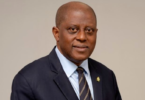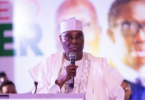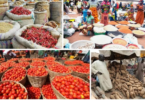President Bola Tinubu delivered on Sunday, 1st of October, his first Independence Speech as the President of Nigeria.
Tinubu, who was inaugurated on the 29th of May, is serving as the 16th consecutive head of state of the country since Independence. He is also the fifth president of the country since the inception of democracy in 1999.
After his inauguration, Tinubu made certain economic moves in an effort to revamp the economic situation of the largest economy in Africa.
In his Independence Speech, he reaffirmed his commitment towards the nation’s economic growth and development, emphasizing critical policy initiatives his administration has embarked on since its emergence. His speech, commensurate with the nation’s celebration of her Independence, offers more insights into the economic direction of the country in the foreseeable future.
Below are five key takeaways from the economic blueprints of the President as highlighted from the Independence Speech.
In his address, Tinubu emphasized his commitment as president to modernize the nation’s economy as well as secure the lives and property of Nigerians. According to the president, the security of lives and properties is at the forefront of his economic initiatives to drive prosperity.
In recent times, there have been multiple attacks by bandits and armed criminals against farmers and agricultural produce, resulting in a higher cost of food products as well as driving a cost-push inflation in the agricultural sector. It then becomes imperative that the priority of the state will be to secure the lives and properties of individuals to reduce the rising cost of food prices as well as the constraints on production caused strictly by insecurities in the country.
Tinubu said,
Tinubu also reassured Nigeria that he is resolute on the path of reforming the economic structure of the country, stating that he is not a president who built a mansion in the mud. He stated that the country needs to go through some long overdue reforms to ensure that the future is secured for prosperity.
He said,
Furthermore, Tinubu also stated that his presidency is introducing provisional wage increments to bolster the federal minimum wage without resulting in undue inflation. In addition, the president said that his attempt to stabilize public sector reforms triggered the setting up of the Infrastructural Support Fund for states to invest in their local communities.
He said,
The President also vowed that his administration is prepared to roll out New CNG conversion kits to enhance affordability in the public transportation sector. He stated that the government is also setting up training facilities to provide employment opportunities for transport operators and entrepreneurs.
“Making the economy more robust by lowering transport costs will be key. In this regard, we have opened a new chapter in public transportation through the deployment of cheaper, safer Compressed Natural Gas (CNG) buses across the nation. These buses will operate at a fraction of current fuel prices, positively affecting transport fares.
As part of his commitment to reform the apex financial institution in the country, the president also stated firmly that he is ensuring a thorough housecleaning of the Central Bank of Nigeria (CBN). He added that a special Investigator will soon present his findings on the past activities of the institution.
It is worth noting that President Tinubu removed the last CBN governor, Godwin Emefiele, due to alleged mismanagement of the institution. He also instituted a new leadership in the bank structure to ensure well-grounded monetary policies to reduce inflation and stabilize the economy.







